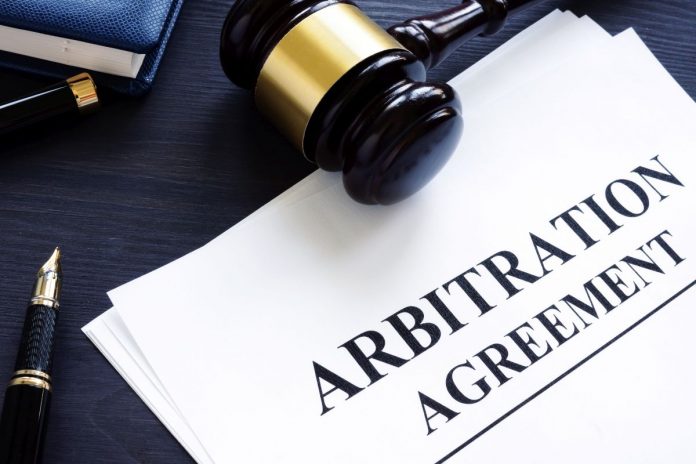This article is written by Palak Nangru pursuing a Certificate Course in Arbitration: Strategy, Procedure and Drafting from LawSikho.
Table of Contents
Introduction
The independence, impartiality, and competence of an arbitrator are the bedrock for any arbitration. These factors are essential for ensuring that the arbitral award passed by the tribunal is fair. The award given by an arbitral tribunal can be annulled, if it is found that the arbitrator acted improperly or had a conflict of interest. Thus, to maintain the authenticity of the awards passed by an arbitral tribunal the parties are allowed to challenge the appointment of an arbitrator even after the initiation of the arbitral proceedings, provided that the party could not decipher such issues after conducting the due diligence while the appointment. In the Indian context, the appointment of an arbitrator can be challenged under Section 12 of the Arbitration and Conciliation Act, 1996.
Section 12 of the Arbitration and Conciliation Act, 1996 aims to ensure the independence and impartiality of the arbitrators in a two-fold manner. Firstly, it provides for certain circumstances that would have to be disclosed by the arbitrator upon appointment, since it may cause doubt on the independence and impartiality of the Arbitrator. Secondly, it allows the parties to challenge the appointment of the arbitrator in case of any circumstances that give rise to justifiable doubts regarding his independence or impartiality, or in case he does not possess the requisite qualifications decided by the parties. The Section also provides that a person would be deemed to be ineligible for being appointed as an arbitrator, if the subject matter of the dispute, or the nature of the relationship between the arbitrator and the parties falls within the categories specified in Seventh Schedule.
The following essay aims to explain the various grounds to challenge the appointment of an arbitrator. 
Grounds for challenge
Let us look at the various grounds for challenging the appointment of an arbitration:
Absence of independence and impartiality
One of the most fundamental principles of natural justice is that the person giving the decision should act fairly and without any prejudice or bias. This principle is applicable to all judicial and quasi-judicial proceedings. This principle also forms the bedrock of any arbitration proceedings.
Russell explained the position regarding of independent arbitrator in the following passage:
“There is universal agreement amongst jurists of all countries that it is of the first importance that judicial tribunals should be honest, impartial, and disinterested. This rule applies in full force to the arbitral tribunals, subject only to this exception, that the parties who are free to choose their own tribunal may provide the act with full knowledge, choose dishonest, partial, or interested arbitrators (though this exception in its turn is subject to a statutory exception which gives parties who have so chosen a locus poenitentiae in certain circumstances). But apart from this exception, arbitrators who are in all other respects suitably qualified are disqualified by dishonesty, partiality or interest.”
When the parties decide to resolve their disputes through arbitration, they expect that the arbitral tribunal would be impartial, neutral, would not carry partisan interest of the parties, and is not biased against either of the parties. Stephan Bond had rightly expressed: “The parties would never agree to arbitration in the first place unless they had confidence that the arbitration system concerned would take every reasonable measure to ensure the independence and neutrality of the arbitral tribunal.”
The independence and impartiality of an arbitrator are important since the independence of the decision-maker is crucial in the exercise of judicial power, as well as an essential quality of an arbitrator. To ensure that an award passed by the arbitral tribunal is fair, the arbitrator must be independent and impartial.
Provisions in the Arbitration and Conciliation Act, 1996
The Fifth Schedule of the Act provides the grounds that may give rise to justifiable doubts regarding the independence or impartiality of an arbitrator. While Schedule 7 provides the grounds that would make a person ineligible for being appointed as an arbitrator. These Schedules create a dichotomy between the persons who become ineligible to be appointed as arbitrators and the persons against whom justifiable doubts pertaining to their independence or impartiality may be raised.
If an arbitrator falls within Schedule 7 of the Act, then either of the parties has the liberty to request the removal of an arbitrator by filing an application to the Court under Section 14(2) of the Act. In case there is a justifiable doubt regarding the impartiality and independence of an arbitrator due to certain disclosures made under Schedule 5, then either of the parties may challenge the appointment before the arbitral tribunal. The Arbitral Tribunal has the authority to decide upon the validity of the appointment based on the facts presented before it. If the challenge before the arbitral tribunal is not successful, then the arbitral tribunal would continue to proceed and pass an award regarding the matter. If the party is still aggrieved, then it may approach the Court for Court under Section 34 of the Act for setting aside the award based on the lack of independence and impartiality of the arbitrator.
While interpreting the 5th and 7th schedule of the Arbitration and Conciliation Act, 1996, the Supreme Court observed that “the doubts as to the independence and impartiality of the arbitrator are justifiable only if a third person would reach a conclusion that an arbitrator would be influenced by factors other than the merits of the case. This test requires taking a broad common-sensical approach to the Schedules – a fair construction neither tending to enlarge or restrict unduly.”
While dealing with challenges against the appointment of an arbitrator, the Court acts on the principle that “justice must be seen to be done”. Thus, even in situations where the arbitrator was not independent but had disposed of his duties in a bona fide manner, the Court would accept the challenge to the arbitrator’s appointment. The Court generally examines if there appears any real danger of bias or if there is only a probability or even a preponderance of probability of such bias in the matter while determining if there is any need to intervene in the appointment of a certain arbitrator.
Unilateral appointment
Party autonomy is an essential feature of any arbitration proceedings, generally, the Courts do not intervene in the specifics that have been decided by the parties regarding their arbitration proceedings. However, over the years, the Indian Courts have adopted a strict stance about the unilateral appointment of an arbitral tribunal.
The Supreme Court in the case of Perkins Eastman Architects DPC & Anr. V. HSCC (India) Ltd., looked into the principles of party autonomy and the principles of natural justice and was of the opinion that a person that has an interest in the outcome of the arbitration proceedings, cannot be entitled to appoint the sole arbitrator, even if the parties had agreed upon such mechanism for the appointment of an arbitrator in their agreement. Thus, in situations where the arbitral tribunal is solely appointed by one of the parties, the parties can challenge the appointment of the arbitrator on that ground.
Against the criteria
In arbitration agreements parties are generally free to decide the qualifications and experience of the arbitrators in the agreement. In situations where the arbitrator may not possess the qualifications and experience agreed upon in the agreement, then the parties have the liberty to challenge the appointment of the arbitrator. However, in matters where the parties failed to raise any objection against the appointment of the arbitrator during the proceedings, then the objection would’ve been deemed to be waived off by the parties.
The arbitration proceedings or the arbitral award would be deemed to be void since the arbitrator would lack jurisdiction, if the challenge to the appointment of an arbitrator, on the ground that he/ she does not have the qualifications and experience provided in the agreement, is successful. However, time is of the essence in such objections, and a party may lose its right to object if it fails to exercise its right in a timely manner. For instance, in the case of Oakland Metal Co. Ltd. v. D Benaim & Co, the Court observed that the party had lost its right to object against the appointment of an arbitrator on the basis that he was not properly qualified after the arbitral tribunal had passed an award.
It must be kept that the law does not provide for any particular qualifications to act as an arbitrator unless the parties agree upon the same in their arbitration agreement. Thus, the parties cannot file a challenge against the appointment of an arbitrator based on lack of qualifications, if the parties have not agreed upon any requisite qualifications in their arbitration agreement.
Waiver of ineligibility
A person may be ineligible to act as an arbitrator due to the provisions of the Seventh Schedule of the Act. However, the parties may agree to appoint such a person as the arbitrator under Section 12(5), provided they expressly waive off any objection against such an appointment after the dispute has arisen.
Since party autonomy is a crucial part of arbitration proceedings, the parties have the autonomy to appoint an arbitrator, despite there being a justifiable doubt regarding the independence and impartiality of the person. In situations where the parties have the liberty to agree to appoint a person disqualified under Schedule 7 as an arbitrator, the parties would not be permitted to raise a plea of bias to challenge the award under Section 34 later.
Remedy against a biased or prejudiced arbitrator
Parties who may want to challenge the arbitrator would first have to follow the procedure prescribed under Section 12 and 13 of the Act. In circumstances where the party is unsuccessful, then the party may challenge the appointment of the arbitrator before the Court after the award has been passed. On the other hand, if the party believes that it can summarily establish the bias of the arbitrator, then the party may approach the Court to challenge the appointment of the arbitrator under Section 14 of the Act, even before the award is passed.
In the case of Alcove Industries v. Oriental Structural Engineers Ltd, the Court had observed that there was no inconsistency between the remedies available to the parties under Sections 12 and 13 and Section 14 since the invocation of one remedy would not restrict the party from invoking the other remedy. The Court was of the opinion that the remedies that are provided by these Sections form one scheme in which the aggrieved party is expected to first challenge the appointment of the arbitrators under Section 12 and 13. In case the challenge fails, the aggrieved party may file a case regarding the de jure or de facto inability of the arbitrator to act without any prejudice or bias under Section 14.
Conclusion
The parties have the right to challenge the appointment of the arbitrator in the circumstances discussed above. The right of the parties to challenge the appointment of the arbitrator is essential to ensure that the principles of natural justice are upheld in arbitration proceedings.
Students of Lawsikho courses regularly produce writing assignments and work on practical exercises as a part of their coursework and develop themselves in real-life practical skills.
LawSikho has created a telegram group for exchanging legal knowledge, referrals, and various opportunities. You can click on this link and join:
 Serato DJ Crack 2025Serato DJ PRO Crack
Serato DJ Crack 2025Serato DJ PRO Crack










 Allow notifications
Allow notifications


